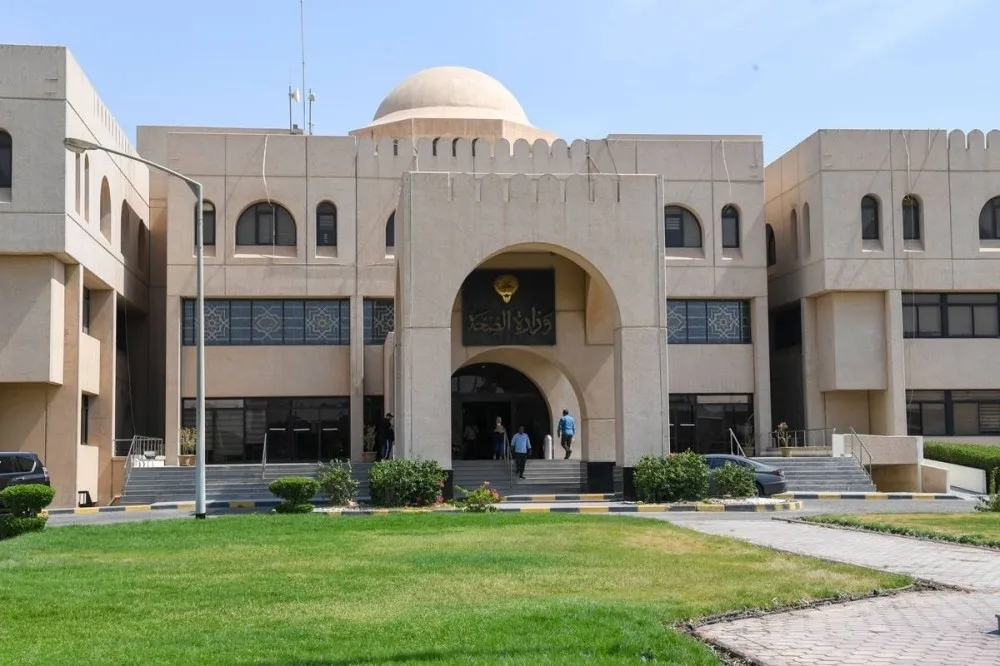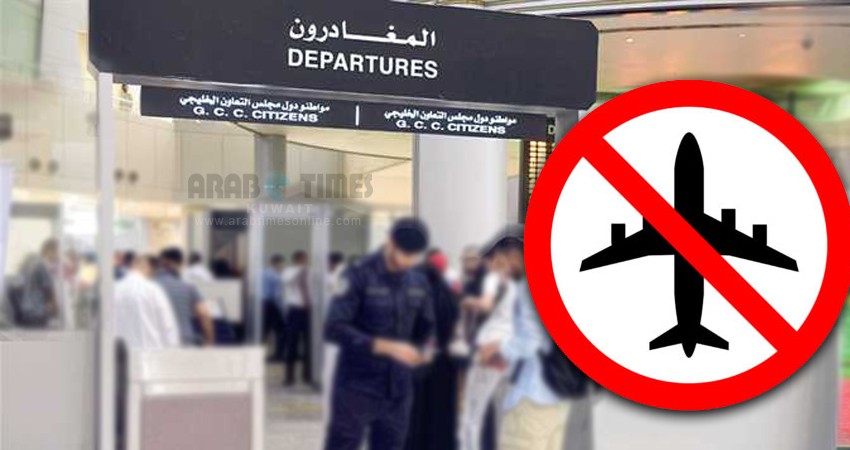Kuwait News


KUWAIT: Recent discussions between Kuwait and the United Arab Emirates have yielded significant outcomes aimed at bolstering bilateral cooperation in security matters. A key focus of these discussions was the prevention of deported individuals from reentering either country using forged documents, reports Al-Rai daily. High-level representatives, including Lieutenant General Sheikh Salem Al-Nawaf from Kuwait’s Ministry of Interior, engaged in fruitful talks with an UAE security delegation. The primary agenda included enhancing coordination in managing the deportation process and sharing crucial information electronically to prevent deportees from circumventing immigration controls.
Kuwait, UAE pledge to bolster security cooperation. Above: Kuwait police verify the identity of an individual through biometrics process.
Additionally, discussions addressed the longstanding traffic link between the two nations, which has been operational for over a year. Plans are underway to finalize pending matters and address any outstanding issues officially in the coming month. Both Kuwait and the UAE expressed a mutual interest in expanding the scope of their cooperation beyond mere traffic violation data exchange.
They aim to implement measures for security collaboration to identify and apprehend individuals using counterfeit license plates within their territories. Emphasizing the importance of consolidating security cooperation, officials from both sides underscored the need to encompass various relevant aspects to ensure the safety and integrity of their borders.

KUWAIT: The Ministry of Health is contemplating the implementation of a fingerprint attendance and departure system for primary healthcare doctors, marking the initial phase of this initiative soon. Informed sources within the health sector have revealed to Al-Jarida that this move is aligned with the overarching commitment of all government employees, including those in ministries and other entities across the country, to utilize the fingerprint system upon arrival and departure from their workplaces.
Emphasizing the broader context, sources highlight that various job categories within the Ministry of Health, such as administrators and nurses, are already mandated to adhere to the fingerprinting requirement. The decision stems from regulations outlined by the Civil Service Commission, where a significant portion, 20%, of the total annual evaluation of an employee is contingent upon their compliance with the fingerprinting protocol during attendance and departure.
The Ministry’s exploration of extending the fingerprint system to doctors operating in dispensaries aims to preempt any potential scrutiny from the Civil Service Commission. By aligning with regulations and fostering accountability, the Ministry seeks to ensure smooth operations and maintain compliance across its workforce.
Noteworthy is the Ministry of Health’s latest data, indicating a workforce of approximately 10,350 human doctors employed within its hospitals and primary healthcare centers. As the Ministry deliberates on this proposal, it underscores a commitment to modernizing administrative processes while upholding regulatory standards within the healthcare sector.

KUWAIT: The Food and Nutrition General Authority has rolled out a new initiative aimed at enhancing public awareness about the nutritional content of packaged foods. Under the banner of “Your Hand is in Our Hand,” this initiative introduces a system of light signals on the front of food packages, making it easier for consumers to make informed dietary choices.
Aligned with Kuwait Vision 2035 and following the recommendations of the World Health Organization, this initiative is part of a broader strategy to promote healthier eating habits, combat obesity, and prevent chronic non-communicable diseases linked to nutrition.
Implemented by the Community Nutrition Affairs Sector, the initiative extends an invitation to all national food companies producing locally packaged foods to participate. The goal is to foster community partnerships and engage food manufacturers, producers, and importers in sustainable development efforts.
The light signals placed on food packages serve as visual cues, indicating the levels of energy, fats, saturated fats, sugars, and salt contained in the product as percentages. This labeling system aims to empower consumers by providing clear information to help them make healthier food choices and manage their intake of fats and calories more effectively.

KUWAIT: Abdullah Al-Rajhi, the Acting Deputy Director General for Aviation Safety, Air Transport, and Civil Aviation Security, disclosed that Kuwait International Airport experienced a decline of 8 percent in passenger traffic and a marginal increase of 1 percent in aircraft traffic, with air cargo traffic witnessing a notable surge of 14 percent in March compared to the previous year.
Al-Rajhi highlighted that in March, the total number of passengers amounted to 1,067,674, with 552,856 arriving passengers and 514,818 departing passengers. Moreover, he noted that the overall aircraft movement to and from Kuwait International Airport in March totaled 9,950 flights, marking an increase from 9,283 flights in March 2023.

KUWAIT: An expatriate woman, born in 1986, has accused her husband of kidnapping her children, reports Al-Anba daily. The woman filed a report at Maidan Hawally Police Station, stating that her husband kidnapped her son identified only as ‘F’ and born in 2017, as well as her daughter identified as ‘M’ and born in 2013, in front of their school, and then traveled with the children. A case of child kidnapping classified as a felony was registered.

KUWAIT: Recent statistics from the Enforcement Department’s Travel Ban Section at the Ministry of Justice for January and February of this year have shed light on travel ban trends affecting both citizens and expatriates, reports Al-Qabas daily. Approximately 16,000 travel bans were issued during this period, alongside 8,033 orders to lift travel bans, in addition to 917 “one-time travel” requests. In January, 6,642 travel ban orders were issued, increasing to 9,006 in February.
Correspondingly, orders to lift travel bans amounted to 6,642 in January and 3,811 in February. Al-Ahmadi Governorate recorded the highest number of travel bans during this time, with 4,321 orders, followed by Farwaniya with 3,641, and Hawalli with 2,452. Al-Jahra and the capital registered 2,381 and 1,757 travel ban orders, respectively, while Mubarak Al-Kabeer had the fewest, with 1,096. In the Family Court, 1,211 travel ban procedures were conducted, with 620 in January and 591 in February. Additionally, 380 orders to lift travel bans were issued, including 220 in January and 160 in February.
Furthermore, 27,809 travel ban orders were registered for rentals, with 14,420 in January and 13,389 in February. The Family Court also processed 907 vehicle seizure and seizure procedures, comprising 474 in January and 433 in February. According to a source, common reasons for travel bans include outstanding checks, bank debts, unpaid phone bills, installment payments, overdue rents, and electricity bills, as well as expenses and family court cases.

KUWAIT: The Ministry of Interior’s Department of Combating Cybercrime issued a cautionary advisory regarding the proliferation of deceptive complaint links. Highlighting the risks associated with accessing such links, the department emphasized the importance of refraining from visiting any electronic platforms claiming to collect complaints on behalf of government agencies.
Of particular concern are “Sponsored” links, which are often promoted through search engines. Users are urged to exercise vigilance and avoid interacting with these links to mitigate the potential threat posed by cybercrime. The advisory underscores the ongoing efforts to combat fraudulent activities online and promote a safer digital environment for all users.


